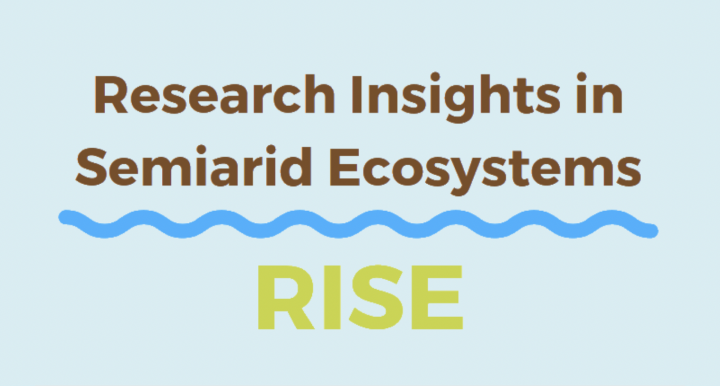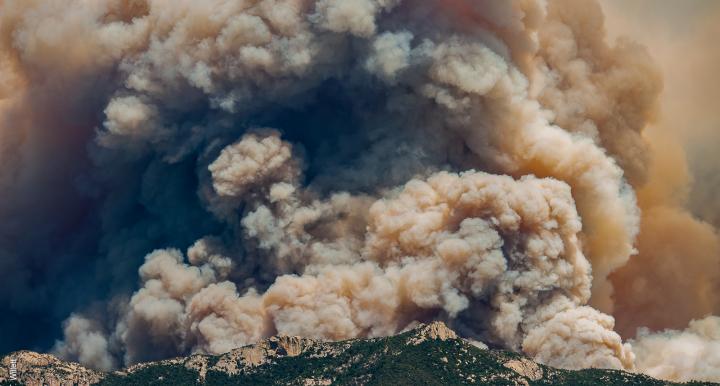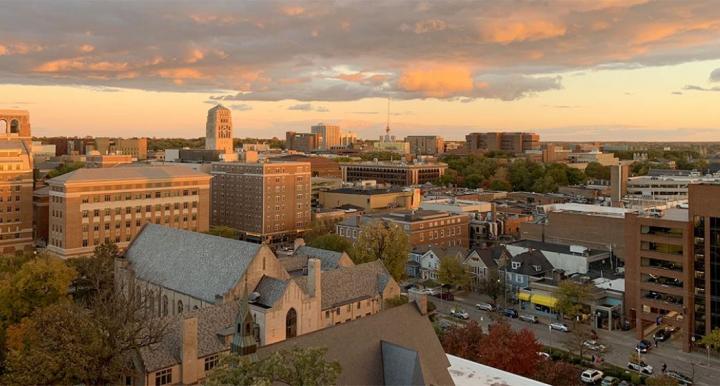Climate Science, Adaptation & Resilience Solutions
Arizona Environment is nationally and internationally recognized for its expertise in climate science, assessment of climate impacts, and design of collaborative, science-based risk management solutions at multiple scales.
Arizona Environment brings together a wealth of expertise to support sound management choices in the context of climate change, linking science, information needs of managers, and decision-making. The University of Arizona has a broad array of existing programs and capacities and over 60 faculty members and three centers that specialize in climate solutions. Our faculty have led national and international climate assessments and development of on-the-ground adaptation plans and programs across the globe. UArizona adaptation efforts are integrated and coordinated within the Arizona Institutes for Resilience (AIR), which promotes timely and relevant science support for decision-makers in the public and private sectors.
Research Spotlights in Climate Science, Adaptation & Resilience Solutions
Katharine Jacobs
Environmental Science & CCASS
Jacobs’ work focuses on climate change adaptation, the use of climate information for water management applications, arid lands water policy and drought planning, stakeholder engagement, and integrating science and decision-making.
Learn moreDiana Liverman
School of Geography and Development
Liverman explores the human dimensions of global environmental change; climate impacts, vulnerability and adaptation; climate justice; and climate policy and mitigation especially in the developing world.
Daniel Ferguson
Arizona Institutes for Resilience & CLIMAS
Ferguson’s focus areas include climate impacts and adaptation strategies for Native American communities and processes for building scientist/practitioner partnerships to address climate-related issues in society.
Learn moreChris Scott
School of Geography and Development & Udall Center
Scott investigates policy dimensions of global change, with emphasis on water and energy security, climate adaptation, urban wastewater and water reuse, agricultural-urban water transfers, and transboundary water resources.
Learn moreCarolyn Enquist
Southwest Climate Adaptation Science Center
Enquist focuses on the natural resource management implications of climate change for biodiversity conservation, as well as supporting climate adaptation through collaboration, partnership-building, and stakeholder engagement.
Learn moreDon Falk
School of Natural Resources and the Environment
Falk’s research focuses on fire history, fire ecology, and ecological restoration and resilience in a changing world.
Learn more
(AIR) coordinates interdisciplinary groups of faculty, students and projects across the University of Arizona’s campus, from climate science to public policy, law, the arts, water resources and beyond. AIR explores and develops solutions with campus and community partners that will serve human and natural communities across the globe.
Read more
Biosphere 2 serves as a unique large-scale experimental apparatus housing seven model ecosystems with active research by teams of multidisciplinary scientists.
Read more
BBCS is a cross-campus initiative that addresses the interdisciplinary scientific and societal grand challenges associated with developing and implementing the emerging transitions needed to mitigate and adapt to climate change. It draws on campus strengths in conservation, human health biodiversity, and societal well-being.
Read more
CCASS brings together a wealth of expertise at the University of Arizona to support sound management choices in the context of climate change, linking science, information needs of managers, and decision-making.
Read more
The Climate Dynamics and Hydrometeorology Center coordinates interdisciplinary research on hydrometeorology and climate among eleven academic units on campus and assists the transfer of hydrometeorology and climate knowledge to the local community, Arizona, the nation, and the world.
Read more
EDO supports the UA space sciences platform with a downward-looking view to Earth, specializing in satellite remote sensing to monitor and predict changes to the Earth system and inform hazards mitigation and national security in the face of natural disasters, a changing climate, and other environmental stresses.
Read more
The Tree-Ring Lab is recognized worldwide as a preeminent center for the advancement of tree-ring techniques and the broad application of dendrochronology in the social and environmental sciences.
Read more
The USA National Phenology Network uses the Internet to bring together citizen scientists, government agencies, non-profit groups, educators, and students of all ages to monitor the impacts of climate change on plants and animals in the U.S.
Read more
The NPC conducts interdisciplinary research leading to the discovery and development of useful natural products from plants and micro-organisms.
Read more
The SW CASC provides objective scientific information, tools, and techniques that land, water, wildlife, and cultural resource managers and other interested parties can apply to anticipate, monitor, and adapt to climate change impacts in the southwestern U.S.
Read more
Through its Annual Grant and Mini Grant programs, the Green Fund supports sustainability-related projects proposed by any member of the UA community, and encourages collaborations between students, faculty, and staff.
Read more












